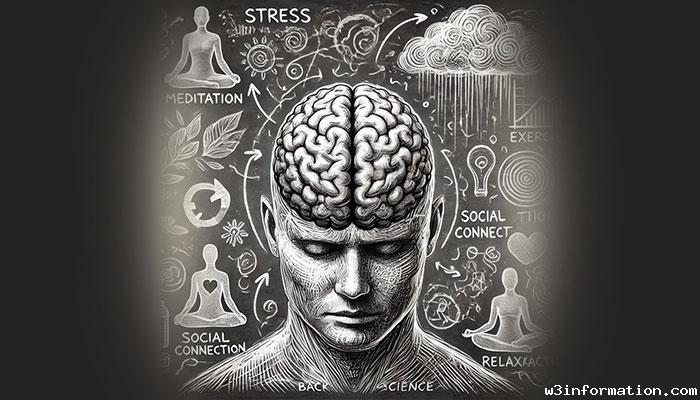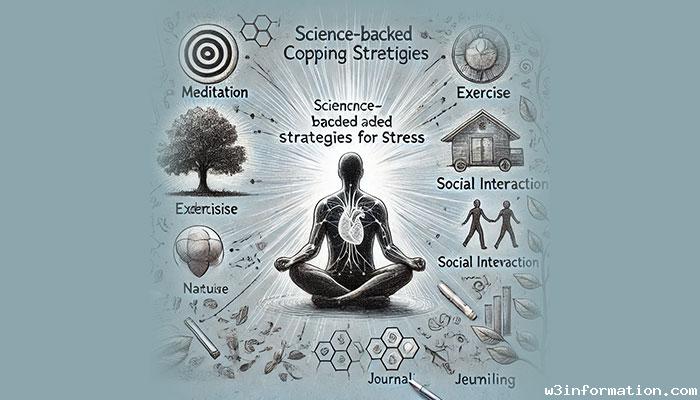How Stress Affects Your Brain: Coping Strategies Backed by Science
Stress happens to all of us, at some time in our lives. Short-term stress is OK (keeping you awake and performing better in a stressful situation), but long-term stress is bad for your brain and body. Learn more about the brain effects of stress, and how to cope better with them so you don’t have to suffer anymore.
The Impact of Stress on the Brain
Structural Changes
Stress accumulates in the brain over time. Learning and memory centres like the hippocampus tend to dilate under chronic stress, as the body’s stress hormone, cortisol, becomes overproduced. This shrinkage degrades memory and cognition.
Just as, the prefrontal cortex, where decisions and emotional regulation are made, can contract as well. Instead, your amygdala – which controls the "fight or flight" mechanism – will become bigger, so you’ll be more susceptible to stress, and perhaps even increase anxiety.
Neurochemical Imbalances
Stress throws out the muddle of neurotransmitters like serotonin, dopamine and norepinephrine that affect mood and mental wellbeing. This imbalance is prone to depression, anxiety and other mood disorders.
Cognitive Decline
Chronic stress also leads to cognitive decline – poor concentration, problem-solving and decision-making. In the long run, it can even lead to neurodegenerative diseases such as Alzheimer’s.

Coping Strategies Backed by Science
Thankfully, there are also scientifically-backed interventions that can work against stress’s effects on the brain. These are some of the best ones:
Exercise Regularly
Exercise is one of the best stress relievers out there. Exercise boosts the release of endorphins, the body’s mood boosters, and causes new neurons to sprout in the hippocampus to rip off cortisol.
Practice Mindfulness and Meditation
Awareness and meditation ease the pressure by soothing the amygdala and enhancing the prefrontal cortex. Studies have indicated that meditating regularly lowers cortisol and facilitates emotions.
Prioritize Sleep
A lot of stress makes for bad sleep, which leads to further deterioration of brain function. Make sure to get 7-9 hours of good sleep a night to allow your brain to heal and feel good again.
Maintain a Healthy Diet
An optimal diet that’s full of omega-3 fatty acids, antioxidants, and vitamins can help guard your brain from stress. Particularly useful are foods such as salmon, nuts, berries and leafy greens.

Foster Social Connections
High social networks buffer from stress. Friends, family, or support networks calm the mind and balance stress levels.
Practice Gratitude
When you look for the things you are grateful for, your mindset is changed and you feel less stressed. Keeping a gratitude journal or just writing down things that you’re grateful for can make a huge difference in your own mental health.
Seek Professional Help
Stress can overwhelm you, which is when going to therapy or counseling can be hugely helpful. Techniques such as cognitive-behavioural therapy (CBT) can ease stress and boost the brain.
Conclusion
Stress might be an inevitable fact of life, but its damage to the brain is not. Learn the science of stress on your brain and use evidence-based coping strategies to protect your mental wellbeing and build resilience. Making some good decisions now could be a road to a healthier, more balanced future.
 Mobile Security: Tips to Keep Your Phone Safe
Mobile Security: Tips to Keep Your Phone Safe
 Top Mobile Apps for Productivity
Top Mobile Apps for Productivity
 How to Optimize Your Mobile Battery Life
How to Optimize Your Mobile Battery Life
 Mobile Gaming: The Best Games in 2025
Mobile Gaming: The Best Games in 2025
 Comparing iOS vs Android
Comparing iOS vs Android
 The Future of 5G in Mobile Phones
The Future of 5G in Mobile Phones